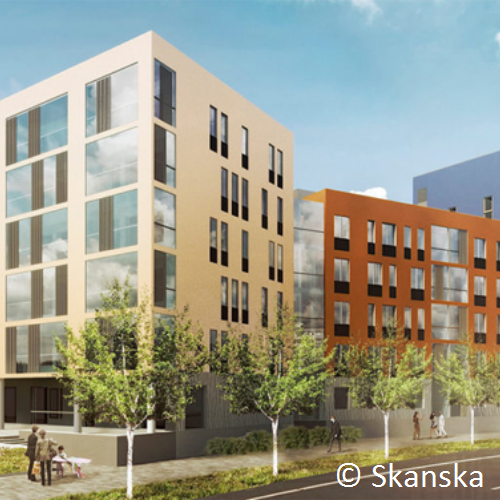Theses
We want to engage students in building a smart city. Collaborative theses are a way to do this. Theses offer a great opportunity for the city to deepen their understanding of the theoretical framework relevant to the development of a smart city. Students, on the other hand, have the opportunity to research a current and genuinely necessary topic through collaboration.
Collaboration can take place at different levels of education – whether in relation to bachelor’s or master’s theses, final projects, diploma works or doctoral dissertations. The scale of collaboration may vary from words of support to a more tight-knit partnership project. If you wish to research topics related to a smart city, contact us and let’s have a chat!
Dimensioning of a solar energy system
A diploma work involved dimensioning a battery-operated solar energy system for a block area including apartment buildings and a leisure centre. The objective was to increase the block’s energy self-sufficiency, make safeguards against rising electricity prices, changing demand tariffs and stricter energy efficiency regulations and, at the same time, calibrate the system to be financially sustainable.
Faculty of Information Technology and Communication Sciences, University of Tampere

Developing a chat service
A final project mapped staff preparedness for introducing a health service counselling chat service and analysed what kind of questions the customers were seeking answers for. According to the research, the most frequently asked questions concerned health and booking appointments. The chat service requires further development and staff training. The operating model created as part of the final project is expected to provide tools for making the service ready for use and a permanent part of health care e-services.
Welfare technology, Tampere University of Applied Sciences

Utilisation of locally produced solar energy
The work examined what a future consumer-driven smart energy community could be like and how its operation could be enabled. The work examined the concept of a cost-efficient and smart energy community by means of valid legislation. Another purpose of the work was to explore how legislation should be developed to make the exploitation of locally produced solar electricity more consumer-friendly.
More information on the work and its results from Satu Vasaramäki.
Building Services Engineering, Tampere University of Applied Sciences
